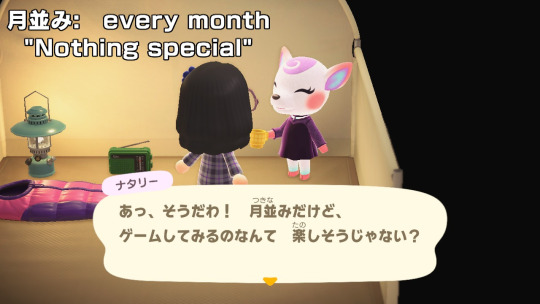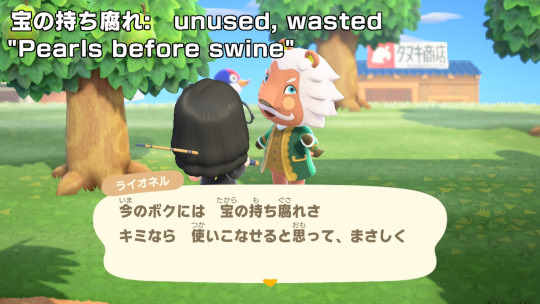Text
The Difference Between シ and ツ
The secrets to easily recognizing these kana are hidden in the stroke order!
(images from japanesewordswriting.com)
SHI し シ


Hiragana し begins with a long vertical stroke down the left side, and ends with a swish to the upper right.
Katakana シ begins with two small lines along the left side, and ends with the same swish to the upper right that its hiragana counterpart had.
You can tell that シ is し because the lines on シ will be coming from the left side!
TSU つ ツ


Hiragana つ begins with a long horizontal stroke across the top, and curves down with a swish to the bottom left at the end.
Katakana ツ begins with two small lines along the top, and ends with the same swish to the bottom left that its hiragana counterpart had.
You can tell ツ is つ because the lines on ツ will be coming from the top!
More Pics to Further Illustrate




Hopefully this helped someone out there! Best of luck in everyone’s studies!
#japanese#japanese langblr#japanese language#japanese translation#japanese learning#japanese study#japanese studyblr#japanese studyspo#日本語#日本語の勉強#hiragana#katakana#learning japanese#studying japanese
150 notes
·
View notes
Text
Japan Housing Websites (part two)
Want to move to Japan? Me too! A while ago, I made a post with some key vocabulary for navigating Japanese real estate websites. This time, I'd like to highlight vocabulary that will help you refine the search results until you find the perfect house.
After selecting the property type and narrowing down the area to search, you'll eventually be presented with a list of houses. Here's a convenient link to a list of houses in Tokyo so you can follow along: TOKYO(SUUMO)
Search & Sort Functions

The orange number at the top of the screen tells you how many total properties were found with your search.
The upper options all have to do with displaying the search results.
通常(つうじょう)表示(ひょうじ):Regular Display シンプル 一覧(いちらん)表示:Simple Summary Display 地図(ちず)で 表示:Display with Map 表示 件数(けんすう):Display Item Number
Below that, we have the options to sort the results. 並び替え(ならびかえ):Rearrange 指定(してい)なし:No Designation
Click the drop-down to see all the different sorting methods, which I've translated below with my best attempts to maintain readability.
新着(しんちゃく)更新(こうしん):Newly Updated
所在地(しょざいち):Address 昇順(しょじゅん):Ascending 降順(こうじゅん):Descending
価格(かかく):Price 安い(やすい):Low / "Lowest" 高い(たかい):High / "Highest"
土地(とち)面積(めんせき):Land Area 建物(たてもの)面積(めんせき):Building Area 広い(ひろい):Wide / Large 狭い(せまい):Narrow / Small
築年月(ちくねんがつ):"Years Since Construction" 新しい(あたらしい):New / Newest 古い(ふるい):Old / Oldest
More Filters
To the right of the house list, you'll see a thin section that will allow for more general filters to refine your search.
絞り込み(しぼりこみ)条件(じょうけん):Refine Conditions


Under this section are a few familiar words: Price (価格), Land Area (土地面積), and Building Area (建物面積). Below each section is the same two drop-down options:
下限(かげん)なし:No Min Limit 上限(じょうげん)なし:No Max Limit
The drop down will let you set the minimum and maximum value for each section. For example: 500万円以上(いじょう)〜1000万円未満(みまん) Above 5 million yen 〜 Below 10 million yen
The next section deals with the amount of rooms in the house.
間取り(まどり):Layout 1K/DK/LDK:1 bedroom houses (plus a kitchen (K), or a kitchen + dining room (DK), or a kitchen + dining room + living room (LDK))
Because public transit is so common in Japan, you also have the option to choose how far away from a train station your house is.
駅(えき)徒歩(とほ):Station Walk In the drop down, you can select the maximum distance in minutes you'd like to be located from a station. 10分 以内(いない):Within 10 minutes
バス 含む(ふくむ):Include Bus Stations Some rural locations might be far away from train stations, so you can select this option here to include bus stations as well!
The End.
Here's the complete vocab list for ease of viewing:
通常(つうじょう):Regular / Normal 表示(ひょうじ):Display 一覧(いちらん):Glance / Summary 地図(ちず):Map 件数(けんすう):Item Number 並び替え(ならびかえ):Rearrange 指定(してい):Designation 新着(しんちゃく):New Arrivals 更新(こうしん):Renewal / Updated 所在地(しょざいち):Address 昇順(しょじゅん):Ascending 降順(こうじゅん):Descending 価格(かかく):Price 安い(やすい):Low / "Lowest" 高い(たかい):High / "Highest" 土地(とち):Land Area 建物(たてもの):Building 面積(めんせき):Area 広い(ひろい):Wide / Large 狭い(せまい):Narrow / Small 築年月(ちくねんがつ):"Years Since Construction" 新しい(あたらしい):New / Newest 古い(ふるい):Old / Oldest 絞り込み(しぼりこみ):Refine 条件(じょうけん):Conditions 下限(かげん):Minimum Limit 上限(じょうげん):Maximum Limit 以上(いじょう):Above / More Than 未満(みまん):Below / Less Than 間取り(まどり):Layout 駅(えき):Station 徒歩(とほ):Walking 以内(いない):Within 含む(ふくむ):Include
#japan#japanese#japanese language#japanese translation#japanese langblr#japanese studyspo#japanese studyblr#japanese learning#japanese study#learning japanese#japan house#moving to japan#japanese vocabulary#studying japanese#日本語#日本語の勉強#日本語勉強
84 notes
·
View notes
Text
Japan Housing Websites (part one)
Want to move to Japan? Me too! Lately I’ve seen a lot of Instagram pages dedicated to showing off cheap homes in Japan. These pages usually just link back to a Japanese real estate website, so I’d like to list some handy vocabulary to help you navigate the sites and find some houses on your own!
Note: This post was made with intermediate level Japanese learners in mind. It's meant to be a vocabulary list with visual examples, not an all-inclusive house buying guide. A complete list of vocab words can be found at the end of the post. For general website navigation, I’d recommend the RikaiChan / RikaiKun extensions which will display a translation of each word you mouse over.
What Websites?
I really like SUUMO, so that will be the site I use for the example pictures. But any website will have more or less the same words!
Navigating the Website

[ 1 ] Creating an Account会員(かいいん)登録(とうろく):Member Registration
[ 2 ] Search探す(さがす):Search / Find This word will come up a lot! The search function may also appear as... 検索(けんさく):Search 物件(ぶっけん)検索:Property Search
Suumo has a nifty map on the front page. If you know the region you'd like to search in, you can choose it here.
[ 3 ] Renting 借りる(かりる):Rent (Borrow) 賃貸(ちんたい):Lease / Rent
[ 4 ] Purchasing買う(かう):Buy
[ 5 ] House Terminology If you've taken a Japanese class, you may have learned that the Japanese word for house is 家 or いえ. Unfortunately, this short and simple word isn't used much on real estate websites. The following terms are typically used instead.
一戸建て(いっこだて):Detached Building A standalone house, as opposed to an apartment or condo.
新築(しんちく)一戸建て:New Buildings
中古(ちゅうこ)一戸建て:Old Buildings 中古 can mean "old", "used", or “secondhand”, none of which sound ideal, but all it means is that the house that has been lived in previously. This is where you find the cheap ones!
Finding Houses

Once you have the region and building type selected, you’ll see a new map you can use to select the prefecture. I'll highlight a few key search methods on this screen.
[ 1 ] Search by Area(エリア)
Click on a prefecture to bring up a checklist of cities and districts. At the bottom of the list, you'll see two options: refining the search further or proceeding with the checked options.

「チェックした市区郡の町名を絞り込む」 "Narrow by town names of checked cities/wards/districts"
市区郡(しくぐん):"City Ward District" 町名(ちょうめい):Town Name 絞り込む(しぼりこむ):Narrow / Refine
「この条件で検索する」 "Search with these conditions"
条件(じょうけん):Condition / Term
The orange number shows how many total properties were found with the checked selections. Click the blue search button if you want to jump straight to the houses without refining the search.
[ 2 ] Search by Railway(沿線)or Station(駅)
Click on a prefecture to bring up a checklist of railways. At the bottom of the list, you'll see two options: refining the search further or proceeding with the checked options.

「チェックした沿線の駅を絞り込む」 "Narrow by stations of checked railways"
沿線(えんせん):Railway / Track 駅(えき):Station 絞り込む(しぼりこむ):Narrow / Refine
「この条件で検索する」 "Search with these conditions"
条件(じょうけん):Condition / Term
Once again, the orange number shows how many total properties were found with the checked selections. Click the blue search button if you want to jump straight to the houses without refining the search.
[ 3 ] Search by Map(地図、ちず) Clicking here will open up a much more detailed map that you can scroll through! Definitely the easiest option, which is why I put it last. :)
The End.
Here's the complete vocab list for ease of viewing:
会員(かいいん):Member 登録(とうろく):Registration 探す(さがす):Search / Find 検索(けんさく):Search 物件(ぶっけん)検索:Property Search 借りる(かりる):Rent (Borrow) 賃貸(ちんたい):Lease / Rent 買う(かう):Buy 一戸建て(いっこだて):Detached Building 新築(しんちく)一戸建て:New Buildings 中古(ちゅうこ)一戸建て:Old Buildings 市区郡(しくぐん):"City Ward District" 町名(ちょうめい):Town Name 沿線(えんせん):Railway / Track 駅(えき):Station 絞り込む(しぼりこむ):Narrow / Refine 条件(じょうけん):Condition / Term
#Japan#Japanese#japanese language#japanese translation#japanese langblr#japanese studyspo#japanese studyblr#japanese learning#japanese study#learning japanese#japan house#moving to japan#japanese vocabulary#日本語#日本#日本語の勉強#日本語勉強
185 notes
·
View notes
Text
More neat words and phrases I've come across while "studying". I did my best to translate, but corrections/suggestions are always welcome.

お手上げ:to give up, hopeless (literally, "to raise one's hands")
お:honorific prefix 手:て、hand(s) 上げ:あげ、raise
This phrase describes giving up, or being in a situation so hopeless that the only thing you can do is throw your hands up in the air and walk away from the problem.
「ゴメン、お手上げだよ!」 "Sorry, [I] give up!"

月並み:commonplace / cliché (literally, "every month")
月:つき、month / "moon" 並み:なみ、each / common
I guess something could be considered common if it happens at least once a month. Apparently, this phrase was originally used as an insult towards old-fashioned poets who would meet monthly to write poetry. In this case, the NPC used this phrase about playing a game, because these guys always do that when they're hanging in a tent.
「月並みだけど、ゲームしてみるのなんて 楽しそうじゃない?」 "[It's] cliché, but doesn't it seem fun to try something like playing a game?"
In the screenshot, I opted to translate it as "nothing special" to try and sound more natural. I think past me was onto something.
#japanese#japanese translation#japanese study#japanese studyspo#japanese studyblr#日本語#日本語の勉強#翻訳練習#studying japanese#japanese learning#japanese langblr#japanese language
147 notes
·
View notes
Text

To make studying fun, I often play video games in Japanese. The other day, I found a neat idiom when an NPC gave me a gift.
宝の持ち腐れ:literally, “a treasure rotting in hand” 宝:たから、"treasure" の:"of" / possessive particle 持ち:もち、"have" or "hold" 腐れ:ぐされ、"rot"
It has the same meaning as the English phrase “pearls before swine”. Essentially, it means that something nice / valuable is being wasted on someone who does not appreciate it or use it to full potential.
Putting it all together to translate the text, we get:
今のボクには 宝の持ち腐れさ As for me right now, [it's like] pearls before swine.
キミなら 使いこなせると思って、まさしく。 If it's you, I thought [you'd be] able to make use of [it], indeed.
After saying this, he gave me a rug. Not the treasure I was hoping for!
Corrections always welcome.
#japanese#japanese translation#japanese study#japanese studyblr#japanese studyspo#日本語#日本語の勉強#翻訳練習#studying japanese#japanese learning#japanese langblr#japanese language
147 notes
·
View notes